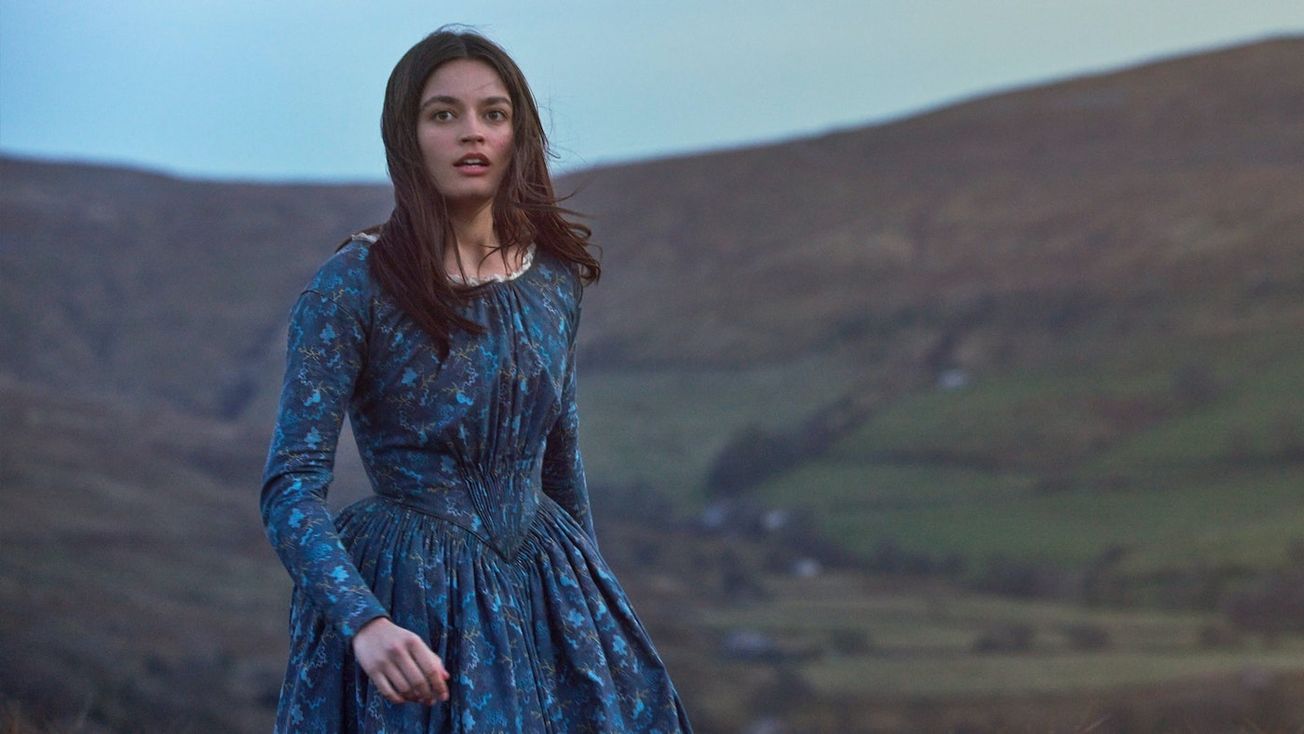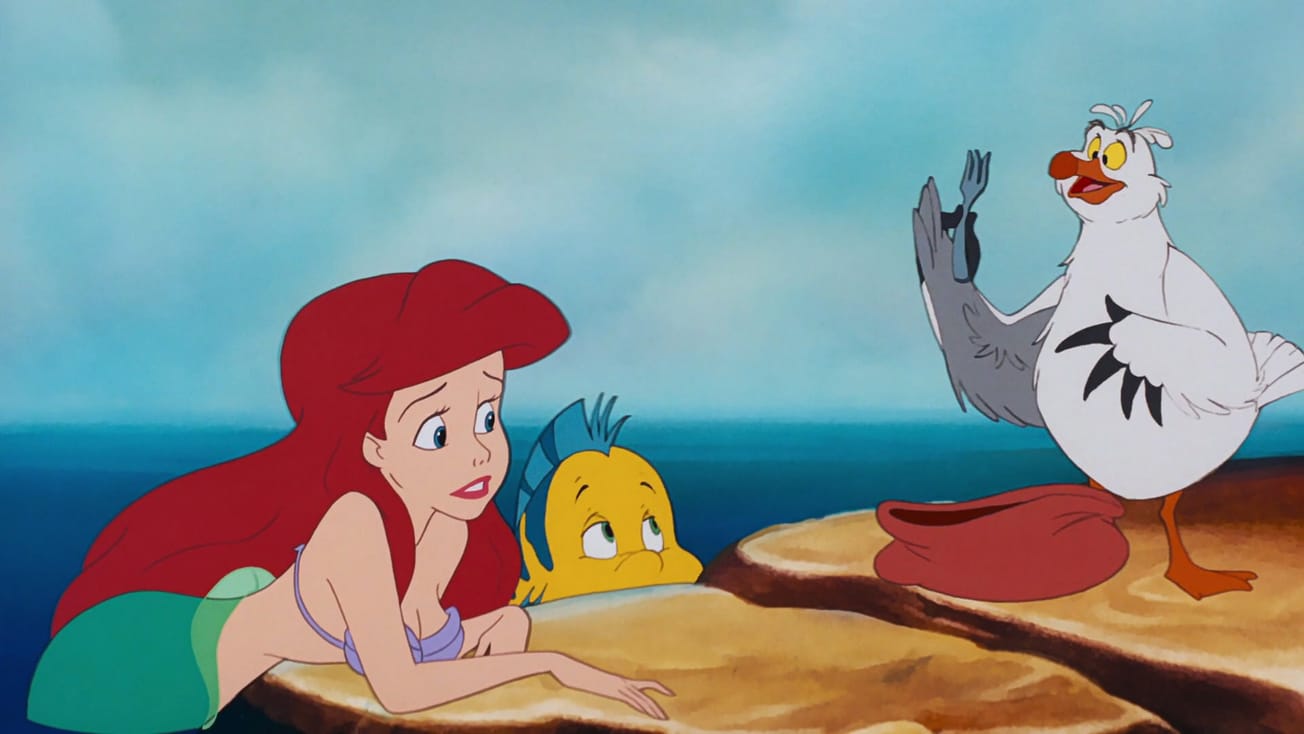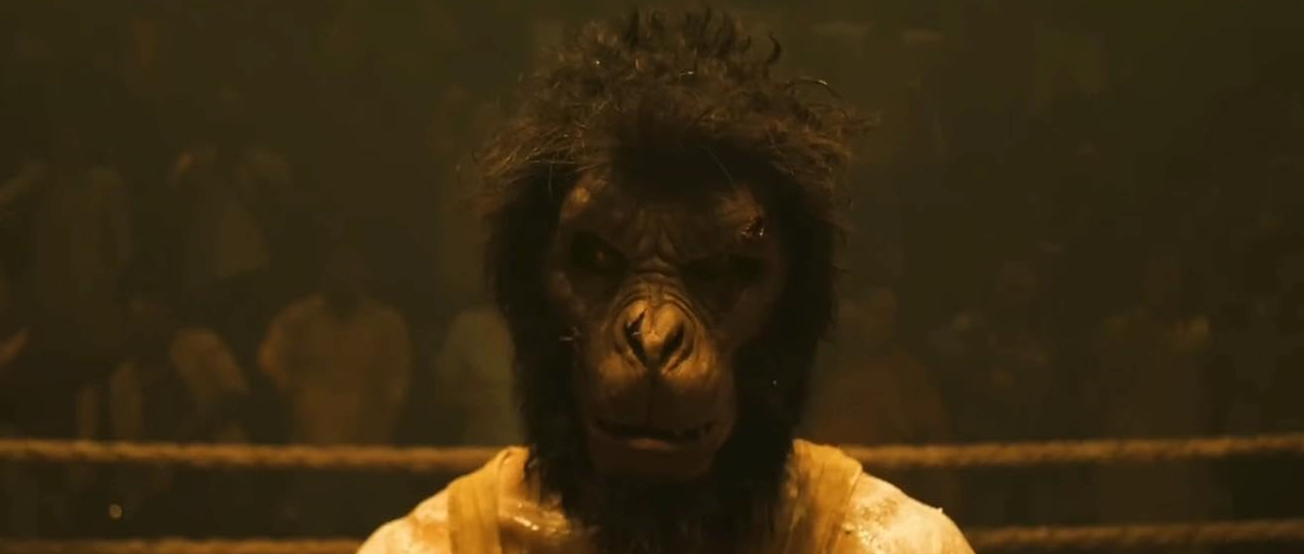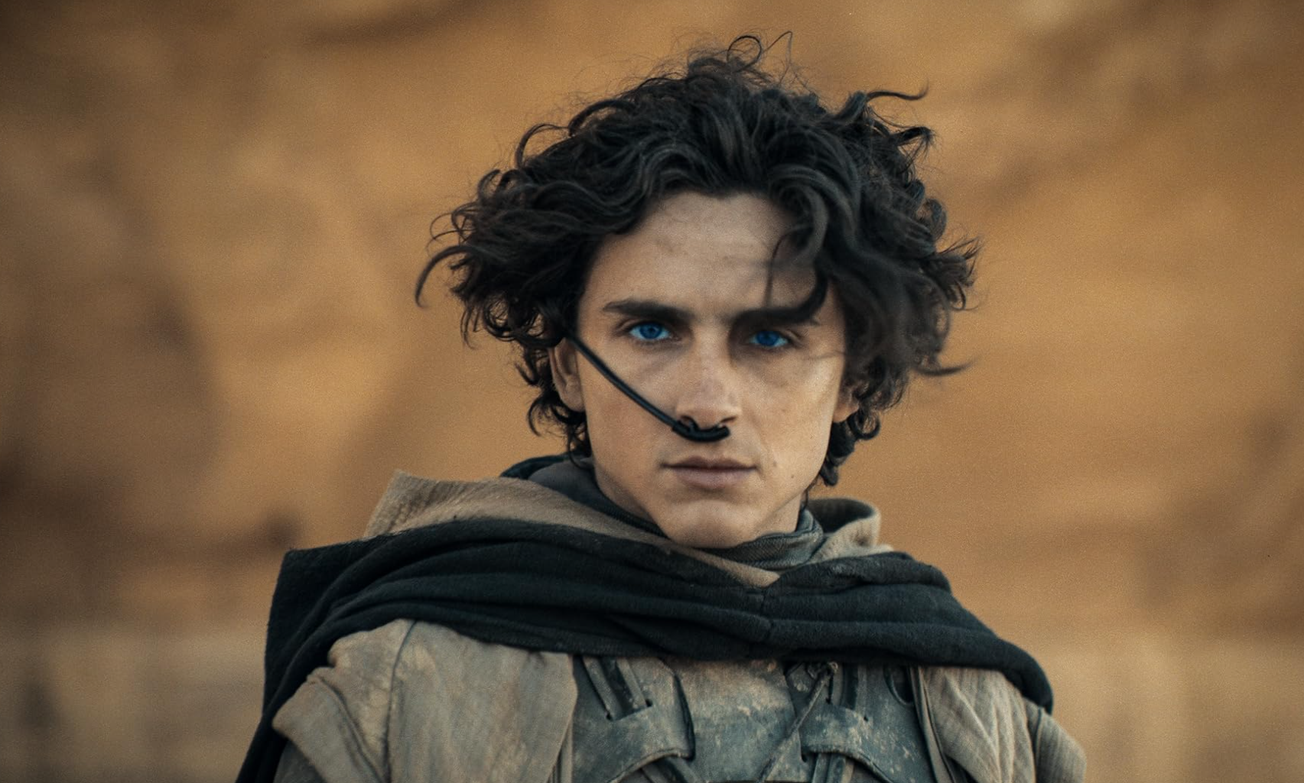By Marine Saint, Deputy Editor and Features Columnist
Frances O’Connor’s directorial debut Emily (2022), is a breathtaking love letter to Wuthering Heights, the timeless beauty of Emily Brontë’s poetry, and the wilderness she inhabited and embodied. Emily imagines the mysterious life of the most beloved Brontë sister, transforming her secluded Yorkshire upbringing into the gothic landscape which inspired the writer’s work.
The speculative biopic perfectly captures ultimate heartbreak: restrained desire, thwarted romance, and family betrayal. In an attempt to find the source of Emily Brontë’s fierce writing, O’Connor presents us with a world of unavoidable passion where the power of nature, both that of the moors and of one’s own troubled heart, is the ultimate narrator.
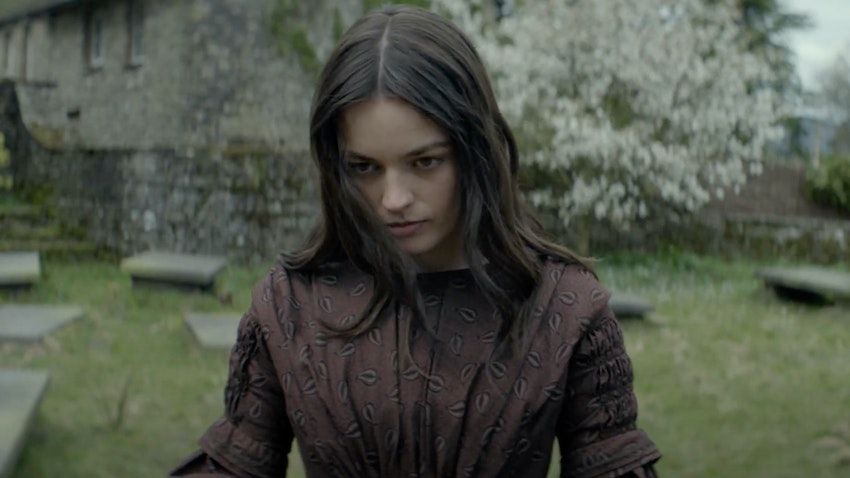
O’Connor is no stranger to the world of period dramas, having herself appeared in Patricia Rozema’s Mansfield Park (1999). Her poignant and lyrical rendition of the famously reclusive Brontë sister will undoubtedly make a mark in the canon of Brontë film adaptations, combining both powerful storytelling, haunting cinematography, and an evocative choral score.
Emma Mackey, best known for her role as Maeve in Sex Education (2019-), is exceptional and radiates Emily’s strong-willed nature and poeticism. Mackey skilfully portrays Emily’s liberation and journey to self-understanding as a writer before her untimely death, leaving a vivid impression worthy of the Brontë’s own pervading legacy.
The particularly candid depiction of anxiety throughout the film is a testament to both Mackey’s and O’Connor’s storytelling skills. We see the protagonist’s sheltered lifestyle in a deeply personal and realistic way, where her discomfort with new surroundings and people can be felt deeply, thanks to the creative uniqueness of Nanu Segal’s intimate cinematography.
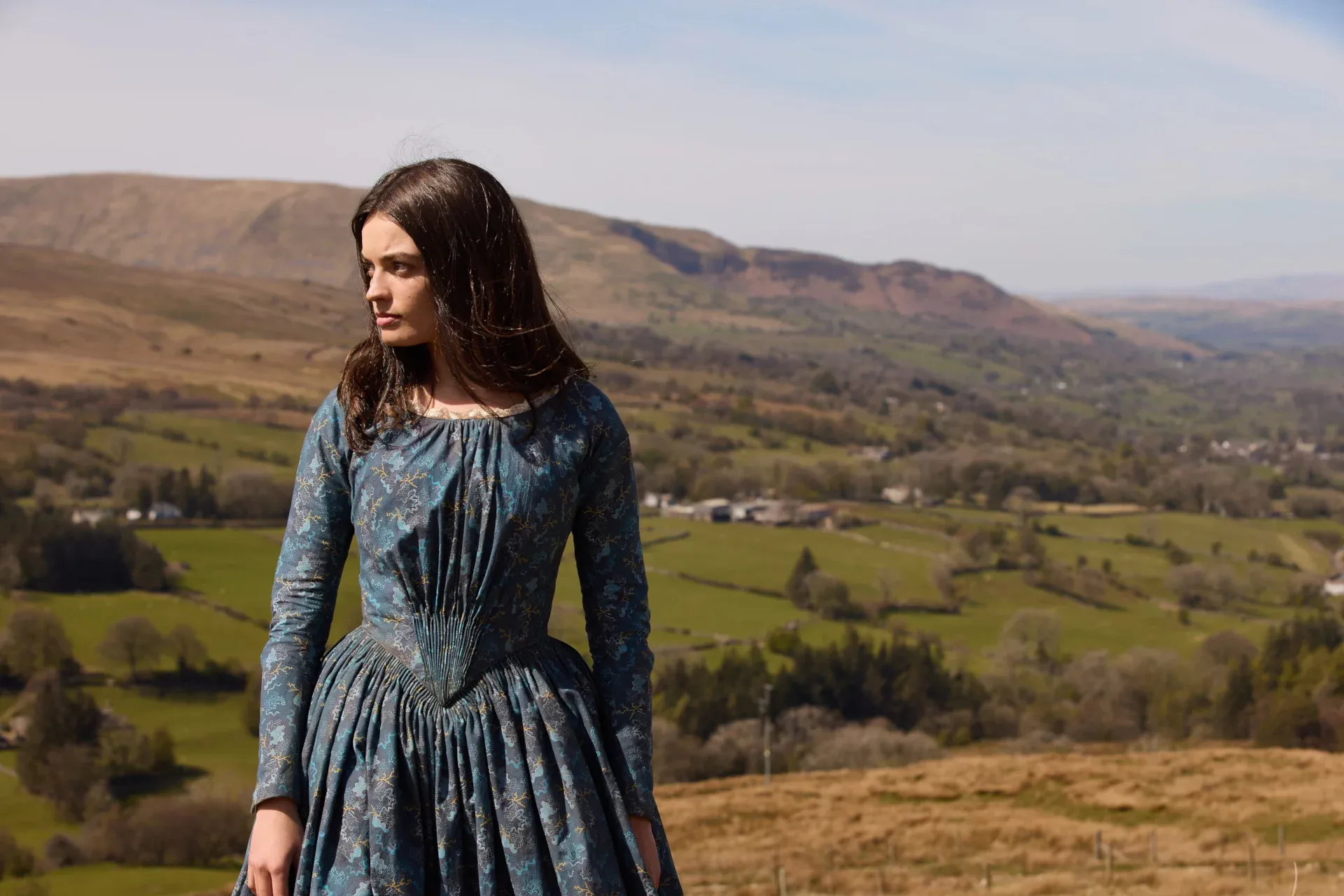
Emily (2022), like the successes of innovative period dramas such as Emma (2020) or Lady Macbeth (2016), is a visual delight, combining gothic and realism with a shadowy and blue-hued colour scheme. Shots flicker between vignettes of the formative moments of Emily’s life, establishing motifs of nature and candlelight illuminating both the eerie and vibrant landscape.
A memorable moment of the film is the especially gripping mask scene, where the elements of horror and supernatural in the film offer a new take on the sanitised period drama genre. As an audience, we are made to ask if this is part of Emily’s nightmares, a symbol of maternal loss, or a reincarnation of the arresting power of her imagination.
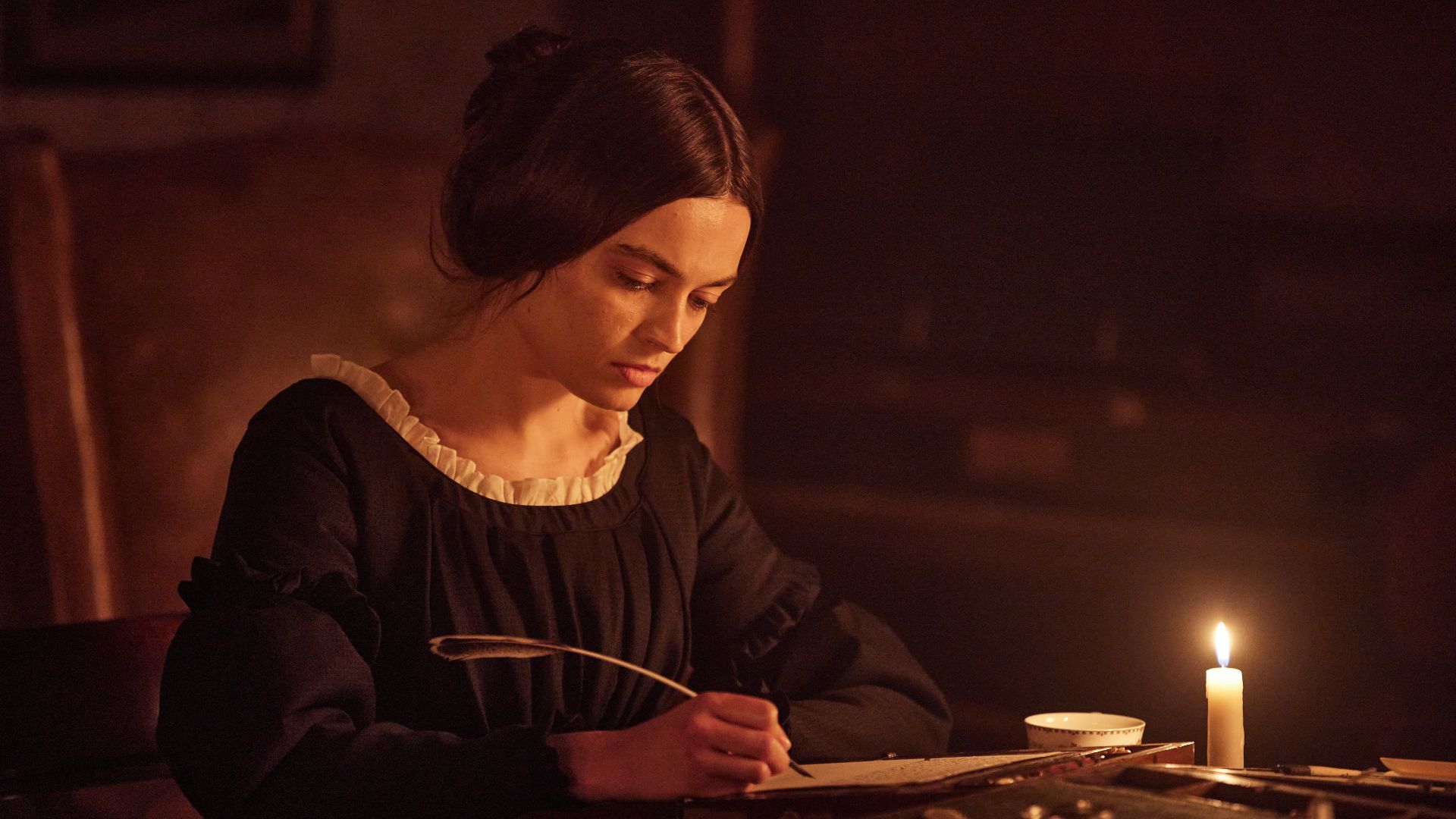
Another impactful development is that of the relationship between Emily (Mackey) and the new curate William Weightman (Oliver Jackson-Cohen). It is established as a period drama favourite formula of enemies to lovers, regardless of the unlikeliness of Brontë’s own romantic relationships.
What appears to be predictable, with longing stares and the obligatory motif of brushing hands to a frantic piano accompaniment, in fact, develops into a heart-breaking portrayal of the turmoil between duty and passion, morality and Victorian sexuality.
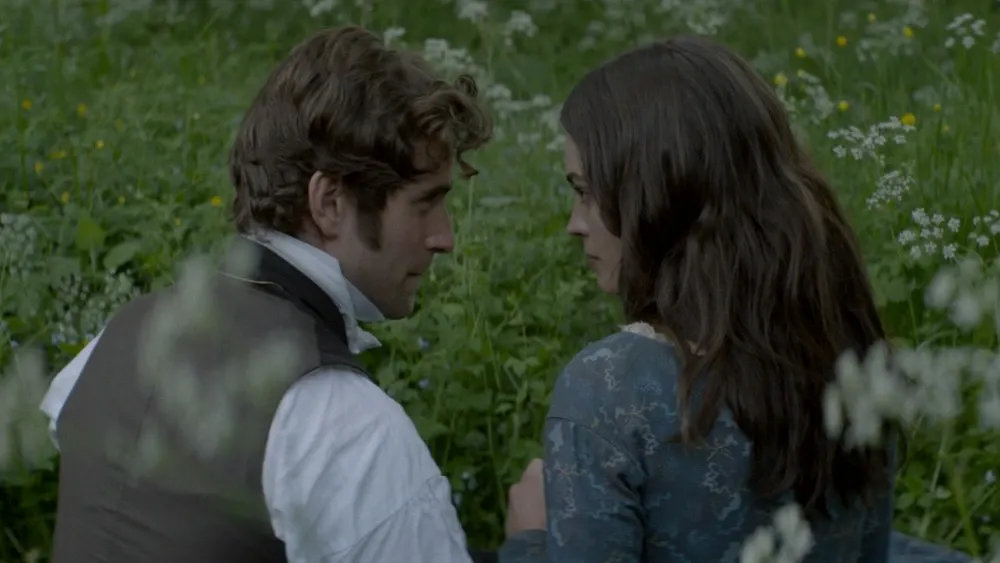
Sisterhood and family dynamics are present throughout the film, as in any adaptation of the Brontë sisters’ lives. The often troubled relationship between Emily and the uptight Charlotte (Alexandra Dowling) is almost as dominant as that of Emily and her brother Branwell (Fionn Whitehead), an aspiring Branwell who introduces his sister to his unstable lifestyle.
The sisters as a trio, with the often neglected Anne portrayed by Amelia Gething, has some moments of tenderness and unity across the film, but it is ultimately the protagonist herself who dominates the story’s focus.
As O’Connor explained in a recent interview with the Guardian, ‘I feel like Emily has been edited for a lot of her life. This is me taking her and putting her in the centre of her own story.’
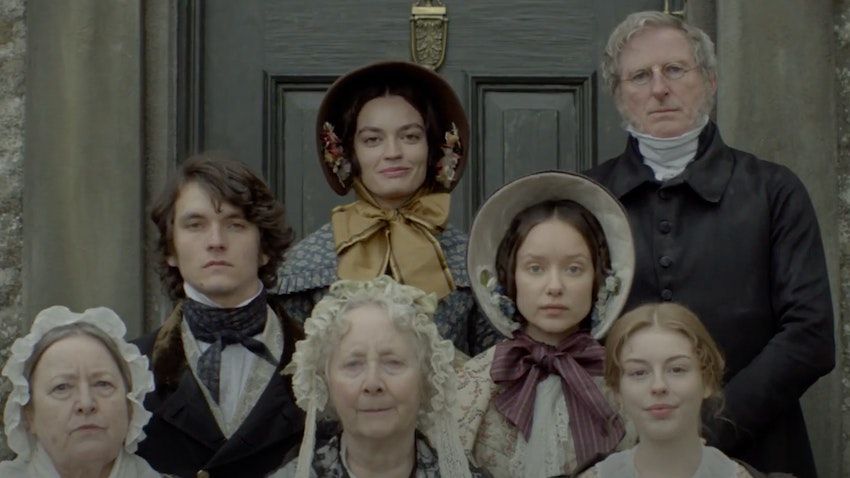
Nonetheless, O’Connor skews an important element of the historical struggle for female ownership: we see Emily proudly receive and cherish her printed text, whilst in reality, all three sisters wrote under pseudonyms.
Perhaps this was a detail which would require more of an equal balance of screentime for the three sisters, but O’Connor still presents us with a fiercely independent lead and subtly reverses other Victorian female injustices, such as the limitations of female work.
The sisters are all driven by their fervent desire to write, with Emily’s uniqueness and sombre thoughts contrasting the constrained corsetry of familial duty and the need to be ‘normal’.
The prominent takeaway from this astounding debut is the feeling of liberation. As Branwell (Whitehead) inspires in his sister Emily's ‘Freedom from thought’, so do we as an audience firmly feel the lasting impact of the Brontë’s powerful words.
Featured Image: Michael Wharley/Popara Films Ltd., courtesy of IMDB
Will you be watching this Brontë biopic?

